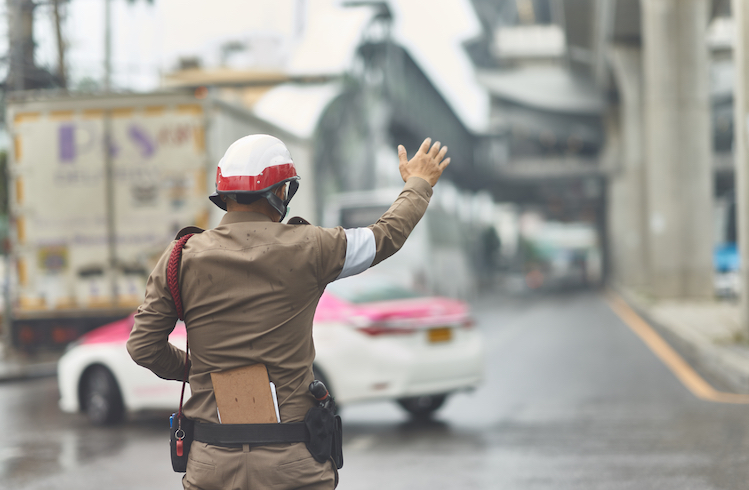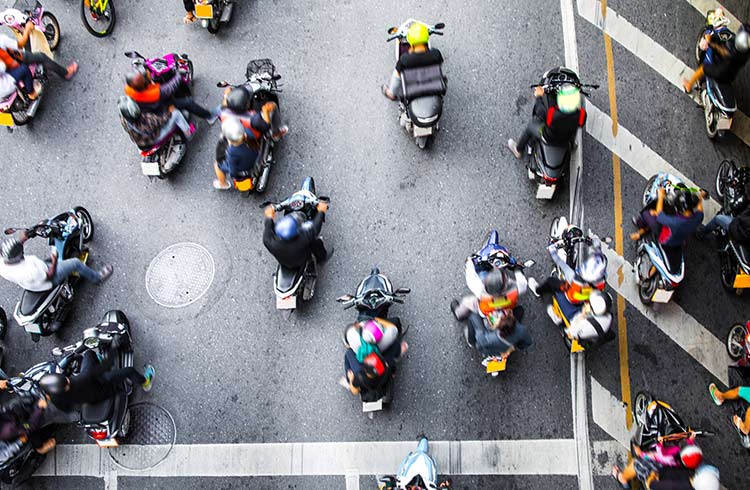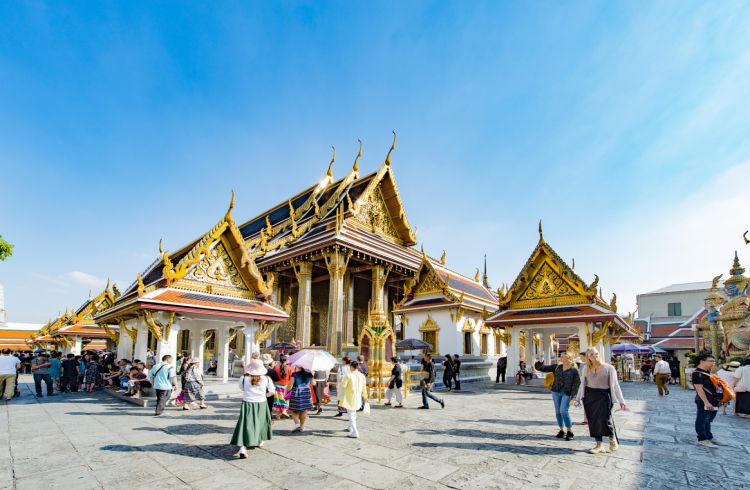Tips on Dealing With the Police When Traveling in Thailand
Are the Thai police trustworthy and approachable? Can (or should) you bribe your way out of anything? Who are the Tourist Police? Read these tips to stay on the right side of law enforcement.
 Photo © Getty Images Vacharapong Wongsalab / EyeEm
Photo © Getty Images Vacharapong Wongsalab / EyeEm
Quick tips for dealing with police in Thailand
- Do not argue with Thai police. This is not your homeland; things work differently here.
- Always carry a photocopy of your passport with you to use as ID.
- Try to get a witness to your interaction with a Thai police officer, to back up your version of events.
- Save the phone number of your country’s Thai-based embassy in your phone. If you’re being treated unfairly by a police officer, immediately call your embassy.
- Be especially wary of police who approach you at night on the street near one of Thailand’s touristy entertainment precincts. These locations are where travelers most commonly run into unscrupulous officers.
- If you’re driving a vehicle in Thailand, carry an international driver’s permit or, at the very least, your driver’s license from back home.
Types of Thai police
Community Police – I’m using this description to broadly refer to the uniformed officers a tourist will encounter on the roads and in the public spaces of Thailand. They are not detectives tasked with executing detailed investigations, but everyday officers whose job is to react to high-volume crimes and maintain order.
Tourist Police – Thailand’s main tourist destinations, such as Bangkok, Phuket, Pattaya, and Chiang Mai, have special police units dedicated to helping foreign travelers. Made up of Thai officers and ex-pat volunteers, they speak English and wear vests that, in large print, identify them as “Tourist Police”. By calling the phone number 1155, a foreigner can request the presence of the tourist police. These officers specialize in arbitrating arguments between tourists and Thai people, which can be related to theft, scams, road accidents, or financial disputes. If you become a victim of a serious crime, visit the nearest police station. For lower-stakes matters, call the tourist police phone line.
Immigration Police – these are the officers you’ll be faced with if you overstay your welcome in Thailand. Tourists from most countries get a 30-day VISA-free entry upon arrival in Thailand. If you remain in the country beyond that, without applying for a Visa extension, you’ll have to explain yourself to the immigration police when you finally attempt to leave Thailand. They will automatically fine you US $15 for each day you’ve overstayed, up to a maximum of US $600.
Avoid bribery
Thai police famously supplement their modest salaries with what is known locally as “tea money”. This refers mostly to small bribes paid by Thai citizens caught for traffic crimes such as speeding or riding a motorbike without a helmet, both of which are rife on Thai roads. Instead of paying an official fine or getting a criminal charge, the motorist is let off after handing over a few hundred baht (US $5 to $20) which slides straight into the police officer’s pocket.
Many Western tourists follow suit when confronted by a Thai police officer. But it is not advisable to bribe Thai police, especially as a tourist with a shallow understanding of how this nation works. Just because Thai people do it does not mean you should, or even that you can successfully.
In attempting to bribe a Thai police officer, you may well land yourself deeper in trouble. Beyond potentially offending the officer, you could also be charged with attempted bribery. Instead, if you do commit a crime in Thailand, act just as you would back home. Pay the fine and toe the line.
Watch out for fake police
As one of the most-visited countries, Thailand is a magnet for scammers looking to target foreign travelers, especially in tourist-soaked destinations like Bangkok, Phuket, and Chiang Mai. These criminals have endless strategies for squeezing money out of tourists and one of those is to pose as a Thai police officer.
In July 2021, the Thai Government released a warning to foreigners about an increase in reports of scammers impersonating immigration police. This announcement followed media reports of fake immigration police raiding condos in Bangkok and demanding to see the Visas of foreign residents.
The Government revealed that these fake police had also been harassing expats in the street, shaking down foreign business owners, and confronting tourists in bars and nightclubs. As part of their announcement, the Government offered helpful advice for any foreigner approached by someone claiming to be a Thai police officer.
You should immediately ask that person for their Thai police identity card, which must list their name, rank, and the station at which they’re based. If that person refuses to show you this card, or their police ID looks fake, report this incident to the nearest police station.
No matter what, stay calm
Thailand is known as the “Land of Smiles” due to the sunny disposition of its people. But that isn’t because Thais are joyful and always relaxed – it’s partly because, in traditional Thai culture, it is frowned upon to openly show anger in public.
Thai people have no problem venting their frustration in private, or for a passionate cause such as a political protest. But becoming livid in public during an exchange with another person is seen as a sign of weakness, and results in a loss of face. This is particularly important to remember when dealing with an authority figure, such as a police officer.
Back home you may be free to remonstrate with a policeman if you feel you’re in the right. In Thailand, however, it is best to always maintain a monk-like level of calm and politeness when dealing with an officer. Such courtesy may well get you out of trouble.
Related articles
Simple and flexible travel insurance
You can buy at home or while traveling, and claim online from anywhere in the world. With 150+ adventure activities covered and 24/7 emergency assistance.
Get a quote


No Comments